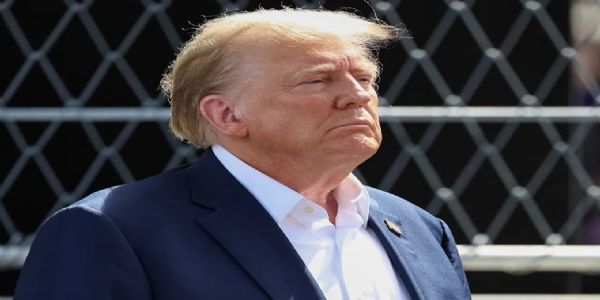
Delhi, 29 May (H.S.):A US trade court on Wednesday halted Donald Trump’s 'Liberation Day' import tariffs, ruling that he had exceeded his authority. The tariffs were imposed on countries that have a trade surplus with the US, and Trump had claimed broad powers under the International Emergency Economic Powers Act (IEEPA) to set these tariffs. The administration argued that these tariffs were essential for an asymmetric trade truce with China and claimed they had facilitated a ceasefire between India and Pakistan following a terror attack. They noted ongoing trade negotiations and emphasized the delicate state of these discussions with a July 7 deadline for finalizing agreements.
The Manhattan-based Court of International Trade dismissed the administration's arguments, stating that Congress did not grant the President unbounded powers under IEEPA and limited his authority to impose economic sanctions during true national emergencies. The court emphasized that regulating foreign commerce is a Congressional prerogative that cannot be superseded by the President's emergency powers. It clarified that the issue wasn't about the wisdom of using tariffs, but rather about the legality of their imposition according to federal law.
The court ruled that granting unlimited tariff authority constitutes an unconstitutional transfer of legislative power to another government branch, as per an unsigned opinion. Any interpretation of the International Emergency Economic Powers Act (IEEPA) that permits such delegation is also deemed unconstitutional. President Trump had invoked the IEEPA's provisions to implement widespread tariffs, citing trade deficits and threats from Mexican drug cartels as justifications. Following the ruling, the Trump administration promptly filed an appeal.
On April 2, tariffs beginning at 10 percent were introduced on various trading partners, with higher rates for nations with significant trade deficits, notably China and the EU. However, many tariffs were suspended within a week due to negative impacts on US financial markets. By May 12, the administration announced temporary reductions in tariffs on China amid ongoing negotiations for a long-term trade agreement. The ruling arose from lawsuits filed by the Liberty Justice Centre on behalf of small businesses and 13 US states, which claimed the tariffs would harm their operations, with additional legal challenges still pending. White House adviser Stephen Miller criticized the court's decision as a judicial coup.
---------------
Hindusthan Samachar / Jun Sarkar








